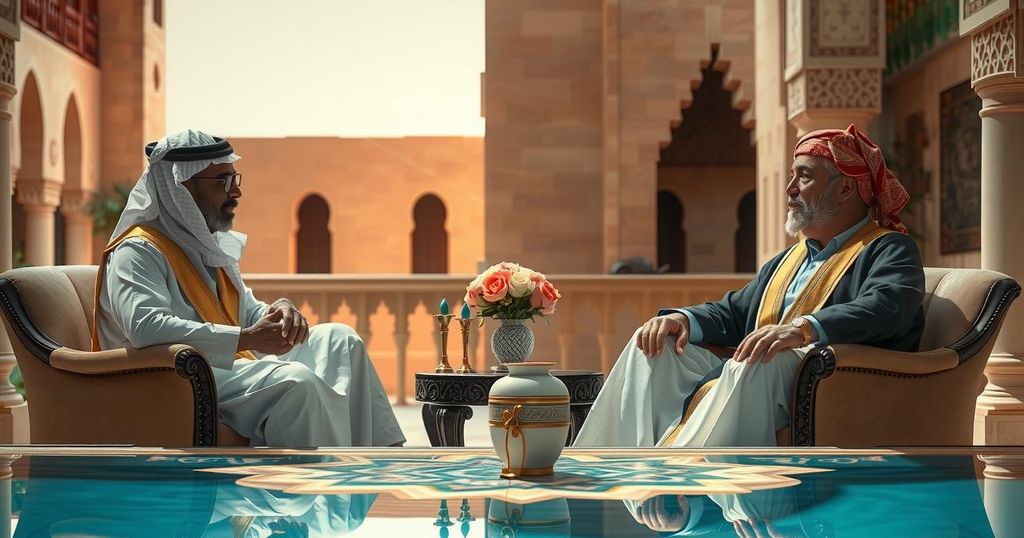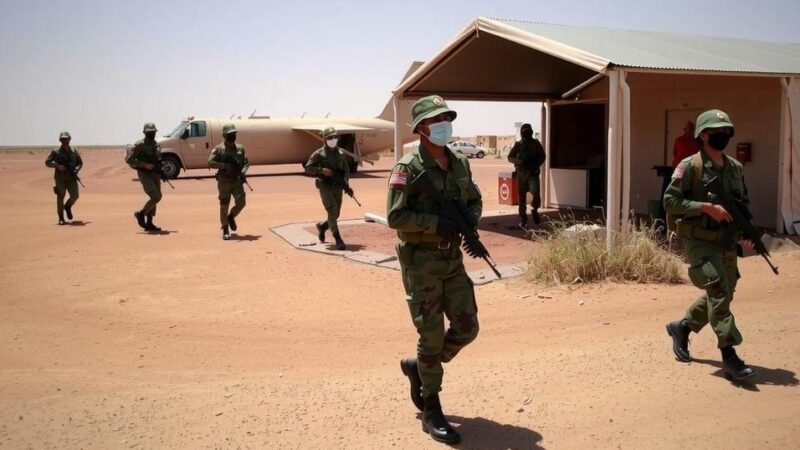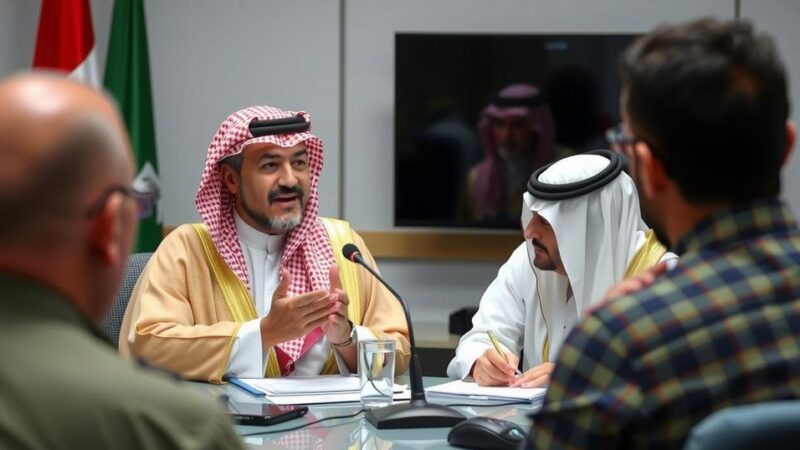Representatives from the Libyan Parliament and the High Council of State met in Morocco to address electoral disputes as part of broader efforts to unite Libya’s governance. Moroccan officials stressed the need for local solutions, while UNSMIL announced the formation of a technical committee to assist in establishing a consensus government. These initiatives aim to facilitate elections and resolve Libya’s ongoing political crisis, which has persisted since 2011.
On Wednesday, representatives from the Libyan Parliament and the Tripoli-based High Council of State convened in Bouznika, Morocco, for discussions aimed at resolving electoral disputes in Libya. Moroccan Foreign Minister Nasser Bourita emphasized the importance of national solutions, asserting that external intervention would not effectively address Libya’s challenges. This meeting is part of ongoing dialogue supported by Morocco, which has facilitated multiple rounds of talks designed to unify Libya’s fragmented governance structure.
The recent formation of a technical committee by the United Nations Support Mission in Libya (UNSMIL) is expected to provide essential milestones for developing a consensus-driven government. This initiative is crucial in a nation that has been embroiled in conflict since the ousting of Muammar Gaddafi in 2011, leading to a political landscape divided between two rival administrations: one in Tripoli, recognized internationally, and the other led by Khalifa Haftar in Benghazi. There is optimism that these consultations will pave the way for elections and contribute to a resolution of the ongoing power struggle.
Since the fall of Muammar Gaddafi in 2011, Libya has experienced significant political turmoil, leading to a bifurcated governance model where two contrasting authorities exist. The Tripoli-based Government of National Accord serves as the internationally recognized administration, while Khalifa Haftar’s forces dominate the east. Various attempts, including those supported by Morocco and the UN, have sought to facilitate dialogue and unify these factions towards a common goal of restoring stability and conducting elections. Previous talks in Morocco have established fundamental criteria for government positions, reinforcing the need for a locally-driven resolution.
In conclusion, the recent consultative meeting in Morocco underlines the critical efforts being made to resolve electoral disputes in Libya, advocating for internal solutions to restore national unity. With ongoing support from both Morocco and the United Nations, there is hope for a structured path towards elections that may ultimately resolve the political fragmentation and power struggles that have beset Libya since 2011. The commitment of various stakeholders to engage in dialogue indicates a positive step toward achieving lasting peace.
Original Source: www.aa.com.tr







